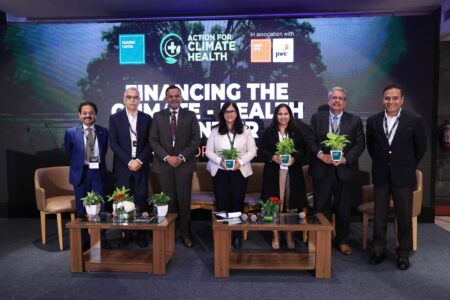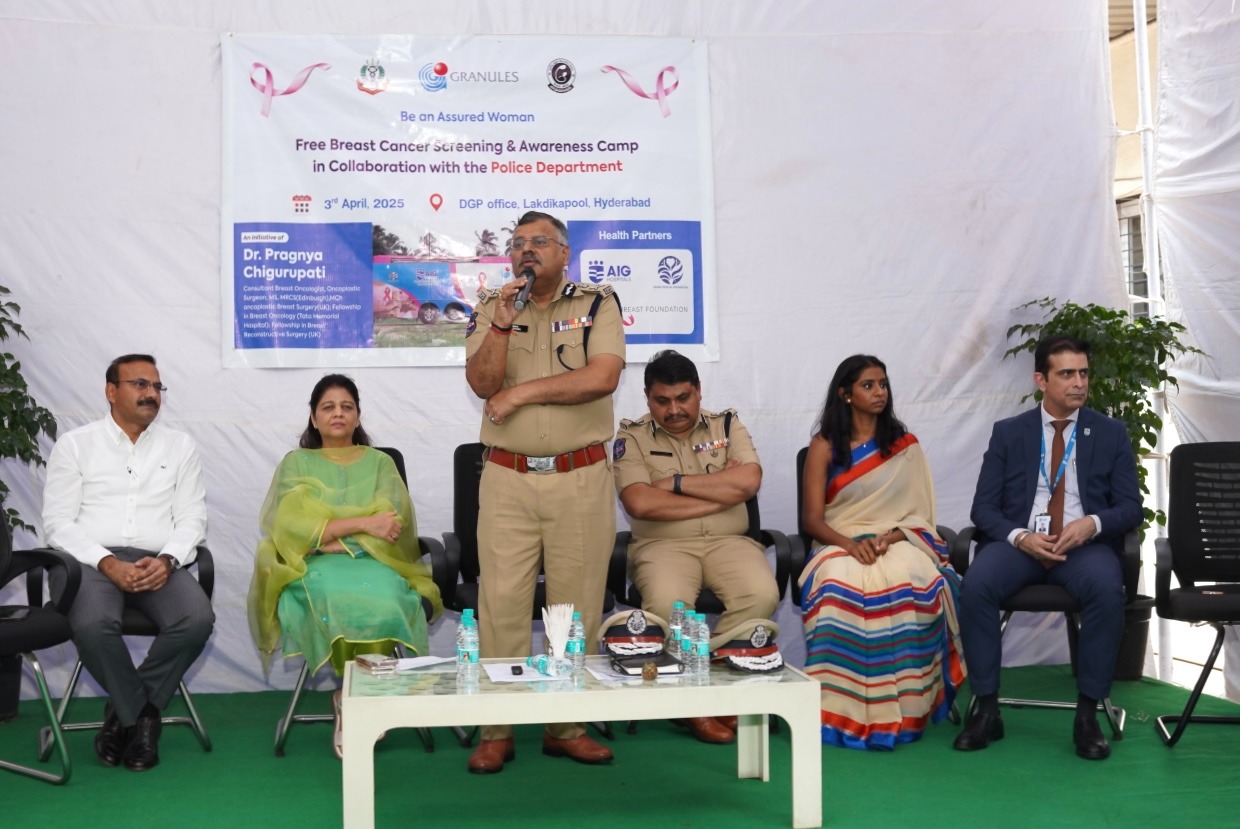Quadria Capital Report Reveals $3 Billion Annual Investment Opportunity in Climate-Health Adaptation for India
Three priority intervention areas with high social impact potential: resilient infrastructure for malnutrition and food crisis, innovation for non-communicable diseases, and resilient infrastructure for air-borne diseases Current climate-health initiatives primarily emphasize mitigation efforts, with

- Three priority intervention areas with high social impact potential: resilient infrastructure for malnutrition and food crisis, innovation for non-communicable diseases, and resilient infrastructure for air-borne diseases
- Current climate-health initiatives primarily emphasize mitigation efforts, with adaptation strategies receiving less than 10% of climate action funding
- Highlight the significant funding gaps and the potential $3 billion market for private investments in climate-resilient healthcare solutions, urging immediate action from both public and private sectors to mitigate these challenges.
Quadria Capital, in association with HealthQuad and PwC India, has released a critical new report titled “Financing the Climate-Health Frontier: Emerging Opportunities.” This comprehensive study highlights the urgent need for enhanced investment in climate-resilient healthcare systems to address the significant health risks posed by climate change in India.
The report reveals that over 90% of India’s population is at extremely high risk from heat stress and that climate-sensitive diseases are escalating. Despite these pressing challenges, the current investment in climate-health initiatives is critically low, with less than 2% of global climate adaptation funding directed towards health.
Mr. Sunil Thakur, Partner at Quadria Capital, stresses the gravity of the situation: “Climate change is not just an environmental issue but a profound healthcare crisis. The health implications are immense, and there is a dire need for targeted investment to safeguard health outcomes against the backdrop of a changing climate. This report provides a comprehensive framework for stakeholders to identify and prioritize climate-health interventions that can drive both social impact and financial returns”.
Ms. Shivani Sahai, Head-Impact and ESG at Quadria Capital highlighted that “Current climate-health initiatives in India are largely focused on mitigation efforts. Our report examines the funding gaps in adaptation-focused strategies, presents a prioritization framework to assess and rank these interventions, while also identifying key enablers to drive climate-health action.”
Dr. Rana Mehta, Partner – PwC India added, “Climate change which exacerbates public health issues, including heat-related illnesses, respiratory problems due to poor air quality, and the spread of infectious diseases will disproportionately impact the most vulnerable sections of society. Now is the time to invest financial resources to ensure a healthier planet for current and future generations.”
The report also presents significant data-driven insights:
- Global climate action in 2022 come to $1.4 trillion, with 91% dedicated to mitigation and a mere 0.5% to enhancing health outcomes.
- India’s climate action reached $22.5 billion in 2022, with about $ 1 billion (4%) dedicated to climate-health projects. Debt-based instruments accounted for 80% of this funding, highlighting a significant gap in equity financing.
- An estimated $16 billion annually is required through 2030 to fund adaptation and mitigation investments in India’s healthcare sector to address climate-related challenges.
- Our projections suggest a $3 billion annual market potential for private investments in adaptation-focused strategies on climate and health.
The report further lays emphasis on the five key-enablers for advancing climate health solutions:
- Innovative financing mechanisms
- Enhanced data availability and evidence generation
- Strategic partnerships
- Impact measurement frameworks
- Research advancement and human development
The report serves as a call to action for policymakers, investors, and the healthcare industry to collaborate and prioritize climate resilience in healthcare infrastructure. By addressing these challenges head-on, India can mitigate the health impacts of climate change and build a sustainable future for all its citizens.






